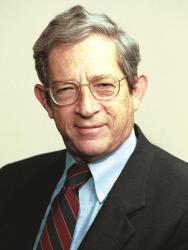

10:00 am EST - 11:30 am EST
Past Event
10:00 am - 11:30 am EST
1775 Massachusetts Ave., NW
Washington, DC
In the first days of March, President Bush travels to India and Pakistan, which are part of a region characterized both by crisis and promise. India-Pakistan tensions have diminished, but basic differences remain over Kashmir; a war rages in Afghanistan; and Al Qaeda and other terrorists are active throughout the Subcontinent.
Bush’s host in Pakistan, President and Army Chief Pervez Musharraf, is in political difficulty at home, partly because of his close identification with American policy. In India, Bush will meet with Prime Minister Manmohan Singh, and he will undoubtedly praise India’s strong secular credentials, its economic progress, and the prospect of greater U.S.-Indian strategic coordination. Yet doubts remain, as the historic civilian nuclear “deal” that the two signed in July has met with stiff opposition in both India and the U.S. What are Bush’s objectives in making this long-awaited trip? Does Washington now see India as a safeguard against a rising China, and will India agree to play this role? Is Kashmir still considered a “flash point” that might trigger a nuclear war between Islamabad and New Delhi? p>To examine these questions, Brookings invited a group of leading experts including Barry Bosworth, a Brookings senior fellow; Stephen P. Cohen, a Brookings senior fellow and author of several noted books on India and Pakistan; Karl F. Inderfurth, professor, Elliott School of International Affairs, George Washington University, and a former assistant secretary of state for South Asia; and Marvin G. Weinbaum, scholar-in-residence, Public Policy Center, Middle East Institute, and a former State Department analyst for Pakistan and Afghanistan. Brookings President Strobe Talbott mode introductory remarks.
A question and answer session followed remarks.


Vanda Felbab-Brown
April 16, 2024

Michael E. O’Hanlon, Ivan Kanapathy, Rorry Daniels, Thomas Hanson, Ryan Hass, Patricia M. Kim, Emilie Kimball
April 16, 2024

Eswar Prasad, Caroline Smiltneks
April 14, 2024